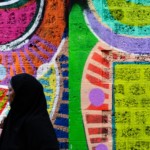For the first time, the crimes perpetrated by the Syrian regime and recounted by survivors have found legal acceptance in the International Criminal Court of the European Union.
Something momentous has happened in Europe and we haven’t noticed. In order to fully grasp it, it is necessary to start from the end.
That is, the letter signed by 18 European foreign ministers, which states, with regard to the Syrian regime of Bashar al Assad: “Given the seriousness of the crimes, we continue to call for the International Criminal Court to be authorized to investigate the crimes allegedly committed in Syria and prosecute those responsible. To counter the strategy of those blocking referral to the Court by the Security Council, we are working to ensure that the facts are documented, pending review by the appropriate judges. Thus, we have supported the creation of the International, Impartial and Independent Mechanism to gather and preserve evidence for future proceedings.
These efforts are essential. We also support the work of the Independent International Commission of Inquiry, which documents human rights violations in the Syrian conflict. It is critical that the violations, documented so thoroughly, end immediately. We are also determined to enforce all international norms to protect the rights of all Syrians, as demonstrated by the recent action taken by the Netherlands to hold Syria accountable for the violations of the UN Convention Against Torture. Domestic courts, some of which have already initiated prosecutions, play an important role in this regard.
In many of our countries, prosecutions have already begun and final sentences have been issued against the perpetrators. As early as 2016, Swedish courts began prosecuting serious crimes committed in Syria. Last month, a court in Koblenz, Germany, issued a historic first judgment against a former member of the Syrian intelligence service for aiding and abetting crimes against humanity. Prosecutions are also underway in France; a lawsuit was recently filed in Paris alleging chemical attacks committed by the Syrian regime against its people.”
Victims as justice workers
Ten years after the beginning of a systematic operation of extermination by the most heinous means, facilitated by global inertia, accompanied by the manifestation of equally heinous reactions, Europe expressly recognizes that the judicial action initiated in some countries of the Union has come to “stir consciences”.
Who gave impetus to such judicial action? State, European or international political authorities? No, these, by themselves, have not activated anything. Were they therefore the “winners” of the war, as it was after World War II with regard to the Nazi hierarchs? No, on the contrary, the victors – or those currently considered as such – seem rather to have hindered it. For the first time – at least in Europe – it was the victims who demanded and made judicial actions feasible, appealing to principles of universality of law, in this sense considered valid by all courts.
It happened in fact that in Germany, some Syrians, who fled abroad, have (almost) causally recognized two former officers of the repression: with courage and determination they have raised, against the two, the crime of crime against humanity. The court asked for permission to proceed. For one of the two agents, this court has already pronounced its sentence: precisely for aiding and abetting crimes against humanity.
The Koblenz judgment
The sentence was made possible by the previous, incredible amount of data – internationally verified – collected and stolen abroad by the Syrian defector “Caesar”, who said about himself: “my task was to document the death”. The system was – and remains – simple: the regime identified and documented the eliminations by putting a number next to each body.
Then the victim disappeared swallowed in mass graves and only the top management of military intelligence knew exactly the identity of the people eliminated, where and when. “Caesar” – this is the code name chosen for this official of the military police – was in charge of photographing all the victims in the area where he worked in the city of Damascus, so that the features of the dead people and the corresponding numbers were clearly visible. Before 2011, his work was “limited”: a couple of engagements a week, rarely more. “Caesar” stated that the regime “normally” tortured detainees to obtain information, but that, since March 2011, it began torturing with the sole purpose of killing.
Thus his work became hell: hundreds of bodies were piled up in an increasingly insufficient space, with an unbearable smell, just as unbearable as the memory of the birds of prey that stuck their beaks into the orbits of the victims or the sight of insects struggling with blood. “Caesar” testified his anguish in the experience of the proximity to a victim that he discovered was not yet dead. “Caesar” would return home in tears. He saw in the victims’ faces those of his relatives and all Syrians.
With the help of his friend “Sami,” at some point he decided that everyone should know, that those lives could not remain forgotten in mass graves. Talking to someone he could trust broke the cycle of his fear. In Syria, you don’t talk to anyone: anyone can be a spy. But “Sami” agreed to become his supportive companion in the enterprise, without hesitation. While he was still engaged in this dirty work, “Caesar” had the courage to download all the photos in USB sticks, living every day in fear of being discovered. At the closing time of the service – 22.00 – he went out with a flash drive hidden in his shoes. When he decided to flee Syria – in August 2013 – he had 53,275 photographs of 11 thousand victims with him.
Horror accounting
Why did the regime keep that meticulous accounting? Why was that secret number photographed next to each body? “Caesar’s” thesis is that Syria’s numerous intelligence services did not trust each other and are still, deliberately, kept in competition with each other. The authenticity of his photos and testimonies was proven in 2014 by an independent Commission of Inquiry chaired by jurists Desmond de Silva and David Crane, former Prosecutors of the Special Court for Crimes in Sierra Leone.
The latest authentication was carried out by Human Rights Watch with the cooperation of forensic scientists from Physicians for Human Rights. The work lasted for 9 months on 27 thousand of the photographs in question. An 86-page report was produced: “If the Dead Could Talk”. A selection of the photos of “Caesar” was exhibited at the Holocaust Museum in Washington, at the American Congress, at the UN Headquarters and then at the Maxxi Museum in Rome, thanks to the efforts of Senator Luigi Manconi.
It is not on the devastating seriousness of the crimes perpetrated by the Syrian regime that I want to focus here; however, but on the high moral value of the process triggered by the testimonies and the victims themselves, who did not seek recourse to further violence, but to international justice.
Possible justice
Such a firm determination to believe in justice and to identify attorneys capable of representing them in court, is in fact of enormous value in the fight against terror, whether of individual states or terrorist organizations. All too often, victims are left to think that, in this world, there is nothing but revenge.
For these victims, no! They believed in justice. It was the choice to ask for justice not against the law, but with the law, that has shaken – I believe – Europe: not so much, unfortunately, the media, which have paid very little attention; not so much the public opinion that, distracted by other things, has remained rather distant. Only the courageous and firm steps of the victims have disturbed a European policy that finally had to question itself and give answers.
The political act is of enormous relevance, especially in this moment, in a Europe that seems – at least for the moment – to rediscover its founding values of freedom and democracy. If this is the case – we cannot take anything for granted and above all for lasting – the defeated have, for once, won: that is to say, in the historical struggle between humanity and inhumanity, they have shown politics once again the path of possible humanity.
This datum, if well-founded, applies to all categories of victims: the victims of the “culture of waste”, the victims of indifference, the victims of “an economy that kills”, even the victims left deliberately and totally defenseless, in many parts of the world, against the pandemic. Now all victims have a precedent of justice. Politics cannot afford to forget, remove, abandon any victim. And they can still win, but relying solely on the non-violent weapon of justice.
Don’t stop here
Clearly we are only and always at the beginning of a journey. I say that this is only the first stage of a possible return of humanity from the rubble of dehumanization. Syria is one of the main battlefields where the opposite extremes have united against justice, dehumanizing and demonizing “the other”: both the “Western (Christian) other”, presented as an enemy of humanity to the Islamic public opinion, and the “Muslim other”, presented in the exact same way to the Western public opinion.
From here – “Caesar”, the witnesses of Koblenz, the ongoing trials, the letter of the 18 European foreign ministers including the Italian Di Maio – we can grasp the new elements of the process of re-humanization of politics – in the confrontation with “the other” – supported by the humanization, never concluded, of ourselves, of each one, personally.
Together we notice a sprout that cannot be magnified, but which we must take great care of. Syria’s future depends on it, but evidently not only. In some ways the war in Syria – with its brutal methods – is infecting the world. This event can and must mark a clear turnaround.

SettimanaNews (WeeklyNews) is an online platform that offers religious information in the context of cultural and historical-civil confrontation. It inherits the paper magazine Weekly (1946-2015) which is characterized by its pastoral focus.
North Italian Religious Province of the Dehonians is the owner of the site.



